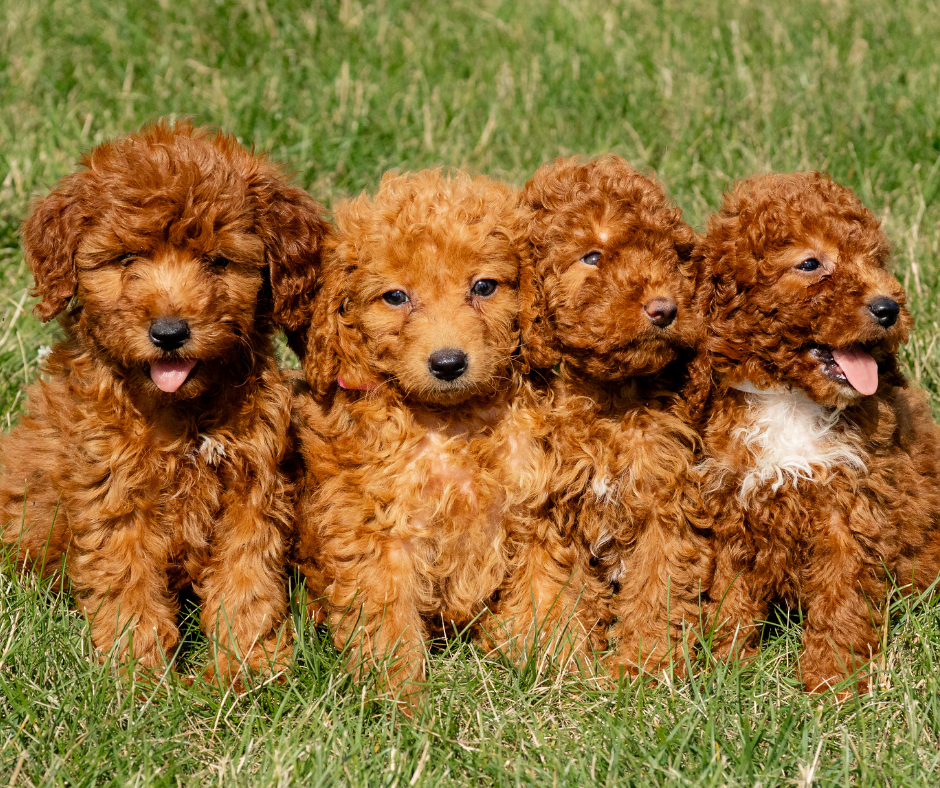Dogs are known as man's best friend for a reason. Their loyal and affectionate nature makes them wonderful companions, and they often become an integral part of our families. As responsible pet owners, it's our duty to ensure that our furry friends lead happy, healthy, and well-adjusted lives. One crucial aspect of a dog's upbringing that can significantly impact their behavior and overall well-being is socialization.
Socialization is crucial for your dog because it helps them build confidence, reduces fear and aggression, enhances communication skills, and prevents behavior problems. By exposing your dog to various experiences, people, animals, and environments in a positive and controlled manner, you ensure that they grow up to be well-adjusted and adaptable companions. Socialization not only contributes to your dog's overall well-being but also fosters positive relationships, makes veterinary care easier, and encourages exercise and mental stimulation. It's an essential part of responsible dog ownership, ensuring that your furry friend is happy, healthy, and a joy to be around.
What is the Definition of Dog Socialization?
Socialization, in the context of dogs, refers to the process of exposing them to various experiences, environments, people, animals, and stimuli in a positive and controlled manner. The primary goal is to help your dog develop the necessary skills and behaviors to navigate the world around them confidently. It is a crucial part of a dog's upbringing and has long-lasting effects on their temperament and behavior.
The Critical Period
The most critical time for socialization in a dog's life is during the "sensitive period," which typically occurs between 3 and 14 weeks of age. During this phase, puppies are highly impressionable and open to new experiences. They are like sponges, soaking up information about their environment, other animals, and people. This is the ideal time to introduce your puppy to a wide variety of positive experiences to build a strong foundation for their future behavior.
Why is Dog Socialization Important?
Now that we understand what socialization entails, let's delve into why it's so vital for your dog's development and overall well-being.
- Builds Confidence: Socializing your dog from a young age helps build their confidence. Exposure to different people, animals, and environments helps them feel more secure and less fearful in new situations. This confidence can prevent them from developing anxiety or aggression issues later in life.
- Reduces Fear and Aggression: Properly socialized dogs are less likely to exhibit fear-based aggression or react aggressively towards other animals or people. When they are exposed to various stimuli during their formative weeks, they learn that unfamiliar things are not necessarily threats.
- Enhances Communication Skills: Socialization teaches dogs how to communicate effectively with other dogs and humans. They learn to read body language, understand social cues, and interact appropriately. This is essential for preventing conflicts and ensuring harmonious interactions.
- Prevents Behavior Problems: Dogs that are not adequately socialized are more prone to behavior problems, such as excessive barking, chewing, or digging. Socialization helps channel their energy in positive ways and reduces the likelihood of these issues arising.
- Eases Veterinary Care: A well-socialized dog is easier to handle during routine veterinary visits. They are less likely to be stressed or fearful, making it safer and less stressful for both the dog and the veterinarian.
- Promotes Adaptability: Dogs that are exposed to various environments and situations during socialization are generally more adaptable. They are better equipped to handle changes in their routine and environment without undue stress.
- Fosters Positive Relationships: Socialization allows your dog to form positive relationships with other dogs and people. This is not only beneficial for their well-being but also enriching for you as an owner. Happy, well-adjusted dogs are a joy to be around.
- Encourages Exercise and Mental Stimulation: Socialization often involves physical activities and mental stimulation, which are essential for a dog's overall health and well-being. It helps keep them physically fit and mentally engaged.
- Promotes Responsible Ownership: Responsible dog owners prioritize socialization as part of their pet's upbringing. By doing so, they contribute to a safer and more harmonious community for both dogs and humans.
When to Start Dog Socialization?
As mentioned earlier, the sensitive period for socialization in dogs typically occurs between 3 and 14 weeks of age. During this time, their brains are exceptionally receptive to new experiences. However, socialization should not end once this critical window closes. It's an ongoing process that continues throughout your dog's life. Here's a breakdown of socialization at different life stages:
Puppyhood (3 to 14 weeks):
- Positive Experiences: Expose your puppy to a wide range of positive experiences, including meeting different people, dogs, and other animals. Introduce them to various environments, sights, sounds, and textures.
- Basic Training: Begin basic obedience training, including commands like "sit," "stay," and "come." This not only helps with socialization but also establishes good behavior habits.
- Handling: Get your puppy used to being touched, groomed, and examined. This is important for vet visits and grooming appointments.
Adolescence (3 to 6 months):
- Continued Socialization: Keep exposing your dog to new experiences and environments. Continue socializing with other dogs and people.
- Intermediate Training: Progress to more advanced training, building on the basics. Consider enrolling in a puppy training class.
Adulthood (6 months and beyond):
- Ongoing Socialization: While the sensitive period may be over, it's essential to keep socializing your dog throughout their life. Continue to expose them to new people, places, and experiences to maintain their social skills.
- Advanced Training: If you haven't already, consider advanced training classes to further enhance your dog's obedience and behavior.
How to Start Dog Socialization
Now that you understand the importance of socialization and when to start, let's explore how to socialize your dog effectively:
- Gradual Exposure: Start with gentle and gradual exposure to new experiences. Avoid overwhelming your dog with too much too soon. Pay attention to their body language, and if they show signs of fear or stress, take a step back and go at a slower pace.
- Positive Reinforcement: Use positive reinforcement techniques to reward your dog for calm and appropriate behavior. Treats, praise, and toys can be powerful motivators. When your dog associates positive experiences with new situations, they are more likely to feel at ease.
- Controlled Interactions: When introducing your dog to other dogs or unfamiliar people, ensure that the interactions are controlled and supervised. Choose well-behaved and vaccinated dogs for playdates, and inform people on how to approach and interact with your dog.
- Consistency: Consistency is key in socialization. Stick to a regular socialization routine to reinforce positive behaviors. This will help your dog understand what is expected of them in various situations.
- Exposure to Various Environments: Expose your dog to a wide range of environments, including parks, beaches, busy streets, and quiet neighborhoods. Each new place provides unique sensory experiences that help them adapt to different settings.
- Desensitization: If your dog displays fear or anxiety towards specific stimuli (e.g., thunderstorms, fireworks), work on desensitizing them gradually. Use counter-conditioning techniques to change their emotional response from fear to calm.
When to Seek Professional Help with Dog Socialization?
If you're unsure about how to socialize your dog or if your dog displays severe fear or aggression issues, consider seeking the assistance of a professional dog trainer or behaviorist. They can provide guidance and tailored strategies to address your dog's specific needs.
What are the Common Challenges in Dog Socialization?
While socialization is crucial, it can sometimes pose challenges for both dogs and their owners. Here are some common issues you may encounter and how to address them:
- Fear and Anxiety: If your dog is excessively fearful or anxious in new situations, consult with a professional to develop a desensitization and counter-conditioning plan. Gradual exposure and positive reinforcement can also help.
- Aggression: If your dog displays aggressive behavior towards other dogs or people, it's essential to address this issue immediately. Consult a professional behaviorist to develop a behavior modification plan.
- Health Concerns: Ensure that your dog is up-to-date on vaccinations before exposing them to other dogs or public places to minimize the risk of disease transmission.
- Overstimulation: Some dogs may become overstimulated in busy environments. Pay attention to your dog's body language, and if they appear overwhelmed, remove them from the situation to prevent stress.
- Age and History: If you adopt an older dog with a history of limited socialization, be patient and go at their pace. It may take longer to build their confidence and social skills, but it's still possible.
Socialization is a fundamental aspect of raising a happy and well-adjusted dog. It builds their confidence, reduces fear and aggression, enhances communication skills, and prevents behavior problems. Starting during the sensitive period of puppyhood and continuing throughout their life, socialization is an ongoing process that requires patience, consistency, and positive reinforcement.
As responsible dog owners, it's our duty to prioritize socialization to ensure our furry companions thrive in various environments and situations. By doing so, we not only improve the quality of life for our dogs but also contribute to safer and more harmonious communities for both dogs and humans. So, take the time to socialize your dog, and you'll reap the rewards of a well-rounded, happy, and well-behaved canine companion.

